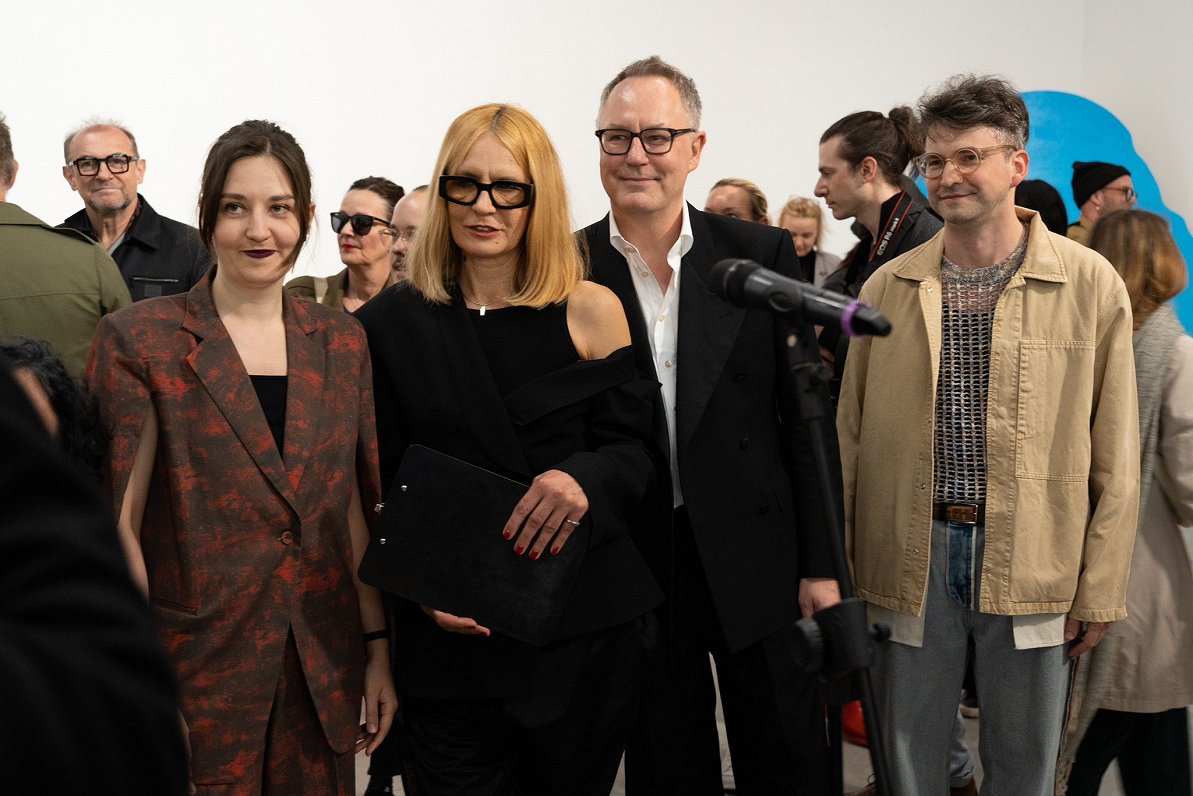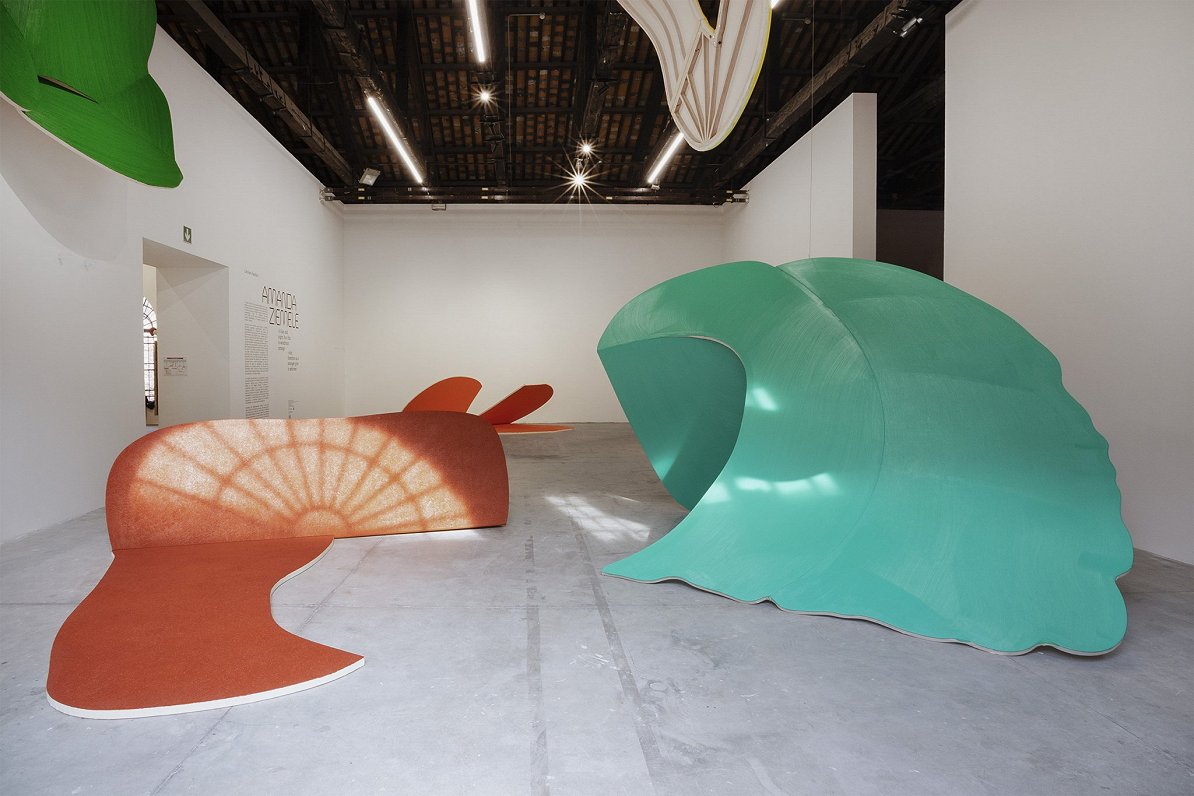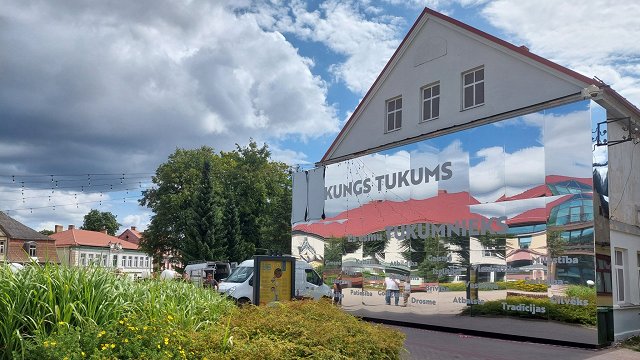The pavilion contains an exhibition by artist Amanda Ziemele with the catchy title "O day and night, but this is wondrous strange... and therefore as a stranger give it welcome" – a well-known quotation from Shakespeare's 'Hamlet'.
In purest contemporary artspeak, the exhibition is described thus:
"As if a cloud has fallen dramatically, a victim of excessive ambition just like the tragic Icarus (his wings are the ruins of the Proustian landscape of memories); a petal lost in the corner of the room, which becomes a refuge in times of turmoil and uncertainty; feelings that are never forgotten; a stranger, soon a lover; a longed-for rebirth or a dirty defeat, the lure of loss... This is Amanda Ziemele's redefined painting as a gorgeous spatial extravagance of irregular geometry and organic volumes. A space of imagined encounters and broken memories, which actively develops and unfolds in an uncontrolled rhythm and tension, it orchestrates a form-making ritual, a celebration of cosmic multidimensionality, staged within the narrow four walls of historical heritage."

Publicity photos show several jolly-looking large forms in various colors in a white room.
Curator Adams Budaks breathlessly explains the ensemble:
"Eight figures with heightened identities and monochrome surfaces/faces - an army of objects in a vortex of corporeal mise-en-abîme - stoically calm, yet passionately stage a scene in the genre of a group portrait... Amanda Ziemele's project is liberating: breaking out of the spatial discipline imposed by preconceived notions, the viewer enters an illusory hybrid zone where generosity and comfort, care and vulnerability reign - and which is made up of haptic forms arranged in scattered, crumbling structures. Shells and nests, shadows and echoes, support structures entangled in fruitless dialogues – the ambiguity of sublimity, between beauty and danger; a mysterious supernaturalism, at once abstract and so familiar. The violations are visible: defying gravity, the forms levitate – simultaneously with joy and despair. Hospitality is an essential act beyond the threshold of possibility - a paradox. Converging absence and presence, daylight is an instrument that invites the viewer to take a journey through a world in which confusion reigns, in which nothing has a measure - through a displaced universe of mutual hospitality, through a crookedly complicated space where the different is a precious commodity. It is Amanda Ziemele's version of a mature space – a contraphantasmagoria, a resistance to exhaustion and fatigue, a space with attitude, ready to think and take in the unusual world of modern society. In the end, what Amanda Ziemele's project offers us is healing - the need for healing."
Minister of Culture Agnese Logina was present at the opening of the pavilion in the Arsenal in Venice and laid on some metaphysical verbiage of her own: "The objects in the exhibition are interconnected, similar to organic beings that have reached a state of cooperation. In this space, they bring together a holistic unit, reminding us how dear our society is to the values of community, support, and togetherness, especially in these difficult times" – a description to which the whole Cabinet of Ministers might well aspire.
The 60th International Art Exhibition of the Venice Biennale entitled “Foreigners Everywhere” (exhibition curator: Adriano Pedrosa) will be open to visitors from April 20 to November 24, 2024. You can find out more about the Latvian pavilion at: www.latvianpavilion.lv




























